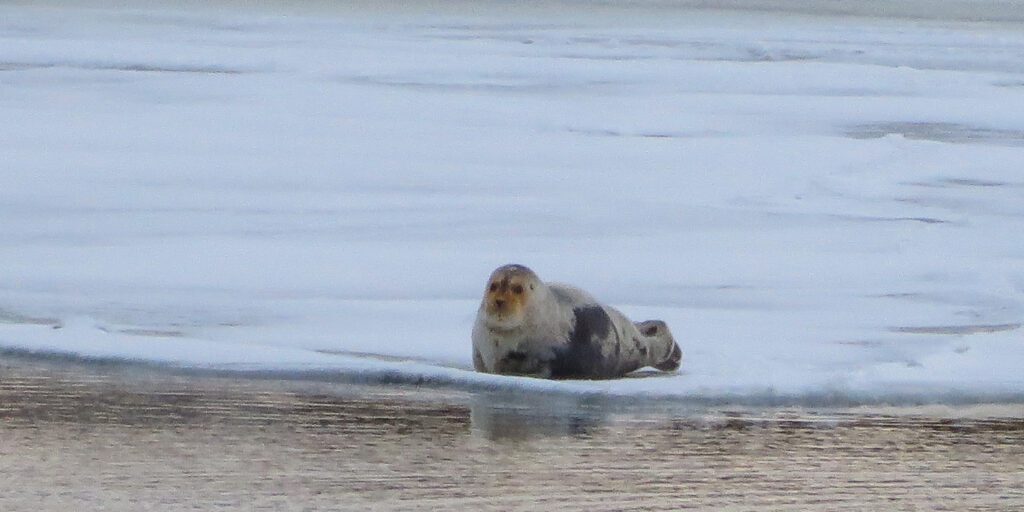With climate change becoming a reality in the Bering Strait region, the National Marine Fisheries Service is reporting a growing number of what they call “stranded” seals on shore.
The agency says they may need to be relocated. In the event a stranded marine mammal is discovered, organizations and the public are being asked to reach out and report them to the Alaska Sea Grant Marine Advisory Program.
Gay Sheffield is with the program and is the main point-of-contact to report strandings in and around Nome.
“If you find a sick or dead marine mammals, or birds for that matter, seabirds, were asking for people to report [them],” Sheffield said.
All marine mammals are protected from disturbance by the Marine Mammals Protection Act. This includes harassment of the mammals – such as pursuing, tormenting, or annoying them in a way that has the potential to cause injury in the wild.
There is also a prohibition on disturbances that cause disruption of behavioral patterns, migration, breathing, nursing, breeding, feeding or sheltering.
It is illegal to kill seals or sea lions unless you are an Alaska Native and the take is for subsistence purposes.
Sheffield said reporting stranded animals helps keep track of cases in the region, which assists in research on the causes of stranding.
“We need to document the changes and the impacts on our marine resources, which are also essential food items for people,” Sheffield said.
Sheffield said a change in climate and ecosystems is bringing some sea animals north, to where they are not usually found.
“We have many changes going on in the Bering Strait region, in our ecosystem, in our marine ecosystem, especially [the] loss of sea ice and animals,” Sheffield said. “Southern Bering Sea animals are more and more being able to come north and thrive because of the increasing temperatures of the water and less sea ice.”
Sheffield can be reached at 907-443-2397. In addition to Sheffield, Chuck Menadalook and Brandon Ahmahsuk at Kawerak serve as points-of-contact for strandings. They can be reached at 907-443-5231.
For strandings outside Western Alaska, call the NOAA Fisheries Alaska marine mammal stranding hotline at 877-925-7773.
Image at top: A seal on the ice at Nome’s small boat harbor. Photo: Laura Kraegel/KNOM
Editor’s note – This story has been modified to reflect that Alaska Natives are permitted to take marine mammals for subsistence purposes.




